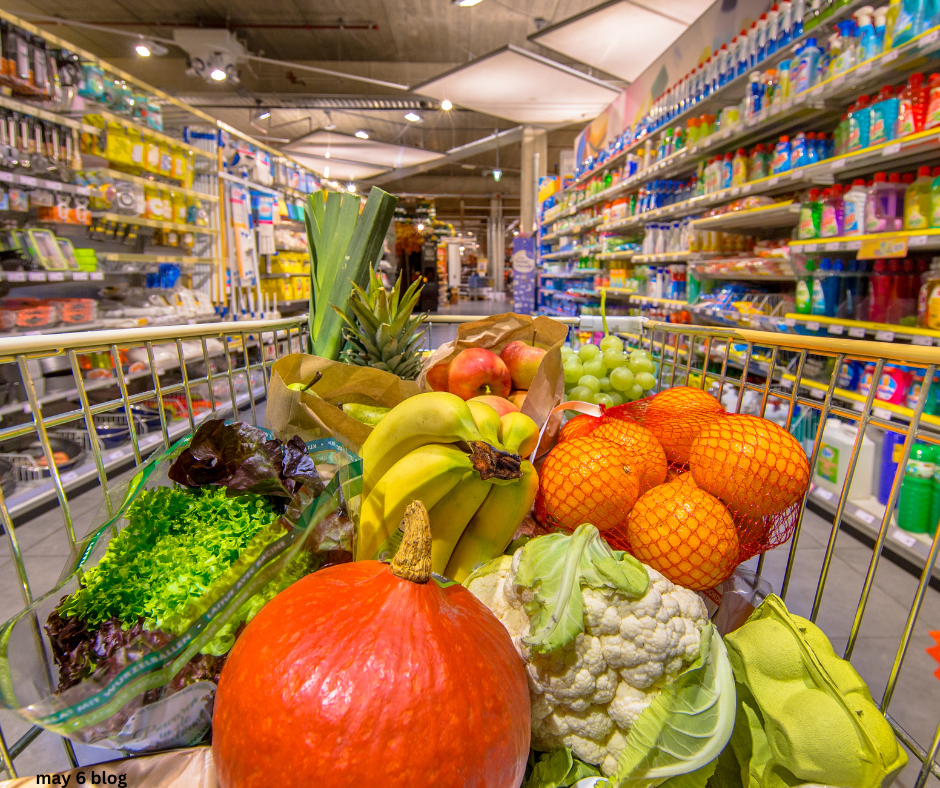Smart Grocery Shopping for Health: A Guide to Making Nutritious Choices
Smart grocery shopping is the cornerstone of a healthy diet, yet navigating the aisles of the supermarket can be overwhelming with so many options to choose from. However, with a few simple strategies, you can make nutritious choices that support your health and well-being. Explore how to shop smart for health by focusing on fresh produce, whole grains, lean proteins, and healthy fats. We’ll also provide tips for reading food labels and avoiding processed foods high in added sugars, sodium, and unhealthy fats.
Focus on Fresh Produce
The produce section is your best friend when it comes to healthy grocery shopping. Aim to fill your cart with a colorful array of fruits and vegetables, as these nutrient-rich foods are packed with vitamins, minerals, and antioxidants. Choose a variety of colors to ensure you’re getting a wide range of nutrients, and opt for organic options whenever possible to reduce exposure to pesticides.
Whole Grains for Sustained Energy
When selecting grains, opt for whole grains over refined grains whenever possible. Whole grains like brown rice, quinoa, oats, and whole wheat pasta are rich in fiber, vitamins, and minerals, and provide sustained energy to keep you feeling full and satisfied. Look for products labeled “100% whole grain” or “whole wheat” and avoid those with added sugars and refined flour.
Lean Proteins for Muscle Health
Protein is essential for building and repairing muscle tissue, so be sure to include plenty of lean protein sources in your shopping cart. Choose lean cuts of meat like skinless chicken breast, turkey, and lean cuts of beef or pork. Plant-based protein sources like beans, lentils, tofu, and tempeh are also excellent options for those following a vegetarian or vegan diet.
Healthy Fats for Heart Health
Don’t be afraid to include fats in your diet, but focus on healthy fats like avocados, nuts, seeds, and olive oil. These fats are rich in omega-3 fatty acids and monounsaturated fats, which have been shown to support heart health and reduce inflammation. Avoid products containing trans fats and limit saturated fats from sources like butter, cheese, and fatty meats.
Tips for Reading Food Labels
When shopping for packaged foods, take the time to read food labels and understand what you’re putting into your body. Pay attention to serving sizes, and be mindful of hidden sources of added sugars, sodium, and unhealthy fats. Look for products with minimal ingredients and avoid those with long lists of additives and preservatives.
Avoid Processed Foods
Processed foods are often high in added sugars, sodium, and unhealthy fats, and offer little nutritional value. Instead of reaching for pre-packaged convenience foods, opt for whole, minimally processed foods as much as possible. Choose fresh or frozen fruits and vegetables, whole grains, and lean proteins, and limit your intake of processed snacks, sugary beverages, and packaged meals.
By following these tips for smart grocery shopping, you can make nutritious choices that support your health and well-being. Focus on filling your cart with fresh produce, whole grains, lean proteins, and healthy fats, and be mindful of reading food labels and avoiding processed foods high in added sugars, sodium, and unhealthy fats. With a little planning and preparation, you can stock your kitchen with the ingredients you need to create delicious and nutritious meals that nourish your body and soul.

